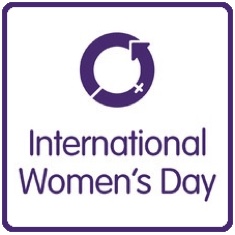 Yesterday was International Women’s Day – on balance, a good thing to remind us of women’s concerns, status and aspirations. And there were celebrations, affirmation and renewed determination – all good stuff. But it’s a bit like your birthday – all cake, champagne, greetings, celebrations – but today it’s about washing up, wiping up the spills, putting the bottles in the recycling bin and cleaning the loo.
Yesterday was International Women’s Day – on balance, a good thing to remind us of women’s concerns, status and aspirations. And there were celebrations, affirmation and renewed determination – all good stuff. But it’s a bit like your birthday – all cake, champagne, greetings, celebrations – but today it’s about washing up, wiping up the spills, putting the bottles in the recycling bin and cleaning the loo.
#makeithappen was the hashtag for the day which was started thirty six years ago when the UN General Assembly invited member states to mark March 8 as a day to celebrate women and world peace. Impressive advances have been made with regard to women’s rights since the late 1970s. Science, politics and the economy have attempted to redress the imbalance on the part of governments and societies all over the world. Today, gender discrimination, societal exclusion and unfair cultural practices are condemned much more than ever before.
But… we are only a few steps along the road. I leave it to others to give solid data; there is no need to duplicate here statistics about rape, domestic abuse, FGM, honour killings and sexual abuse of young girls. Nor those of pay gaps, glass ceilings, objectification, catcalling, poor percentages of women’s media appearances and participation in the formal political process. Nor, despite women outperforming men in examinations at all levels of the education system, that they go on to earn substantially less than their male counterparts, and less status and credibility is given to their creative output. And the mystery that despite higher entry to professions like the law and journalism, few women attain very senior positions.
However, we don’t want to get hysterical about this, do we?
It’s not about men-bashing – these things impact men.
– Men are more likely to commit suicide than women (3-5 times more likely according the stats in Everyday Sexism). Is it because showing feelings, getting help and seeking assistance are seen as ‘girly’ things to do, something that men should be ashamed of? (You know how they hate asking for directions if they’re lost while driving.)
– Men are less likely to be given – and take – leave to go home sick from work and are pressured to return earlier than women are. Is it because women are seen as weaker than men, and men are expected to be strong?
– Men are less likely to secure time off work during school holidays, even if they have children. Is it because caring for children is seen as a woman’s role, and men are supposed to devolve that to the mothers, even though the latter also have jobs?
– Men staying off work to look after a sick child are praised for their progressive nature; women get docked their pay and are seen as weak team members. (This happened to me.)
– Men are pressured to conform to constructed gender patterns, especially in their peer group, the ’let’s do this for a laugh’ pressure when in their heart and mind they know the group action may hurt somebody or something else.
– Many men support their daughters openly and in subtle ways and we should applaud this because it’s not always the case. Many girls’ aspirations are knocked out of them before they transfer to secondary school.
Sometimes you see and hear about women praised for their achievements, especially if she’s ‘the first woman’ to do something, and often with that horrible phrase ‘succeeding in a man’s world.’ Hm. But only when it stops being remarkable should we stop making a song and dance about it.
I know the media love a bit of conflict and we live in a media age, but why must things about men and women always be depicted as a battle? Why do these patterns which abuse men as well as women continue? Why do we see open and aggressive disrespect of young women by young men today? Why do we still stick to an outmoded mental stance inherited from previous centuries? Is it fear, the wish to dominate because of inner uncertitude? And why do we keep picking at this particular scab? Surely as human beings we can do better than this.
Alison Morton is the author of Roma Nova thrillers, INCEPTIO, PERFIDITAS and SUCCESSIO. The fourth book, AURELIA, is due out in May 2015.
Find out more about Roma Nova, its origins, stories and heroines…













Leave a Reply